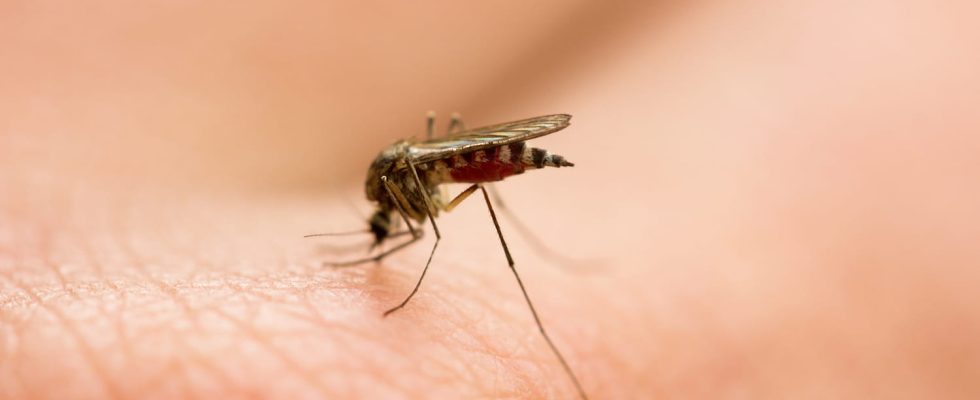The female mosquito bites the man to collect the blood necessary for the development of her eggs. But what really attracts mosquitoes? The light, the smells, the heat…? We take stock of how these annoying insects work.
In mosquitoes, the male is a pollinator while the female feeds two obsessions : lay eggs And take blood. Indeed, according to Anna-Bella Failloux, head of the Arboviruses and insect vectors unit at the Institut Pasteur, “Blood proteins are essential for the production of mosquito eggs. The female bites to take blood, then lays eggs in containers which become breeding sites”. To ensure the survival of its species, the mosquito cannot do without blood.
Are mosquitoes attracted to artificial light?
Light is not the main element that attracts mosquitoes. “In total, there are 3,500 species of mosquitoes, but only 15% of them bite humans, says Mrs. Failloux. Some mosquitoes bite at night, so they may be attracted to light. Others are daytime mosquitoes, attracted to something else in humans, especially carbon dioxide.” A scientific study published in January 2023 in the journal insectsreveals that light pollution disrupts mosquito metabolism. The entomologists conducted their research in the laboratory on a species of mosquitoes mainly present in the North of the United States, Culex pipiens. Typically, Culex pipiens mosquitoes enter a state of drowsiness called diapause. “The mosquito is unable to regulate its internal temperature. Its metabolism slows down to such an extent that it is no longer able to fly, eat or move. In winter and when the temperatures drop, the mosquito dozes”, explains Anna-Bella Failloux.
Light pollution prolongs the liveliness of mosquitoes
However, the study conducted at the University of Ohio shows thatbecause of light pollution, mosquitoes delay diapause and are active longer in the year. This is undoubtedly one of the reasons why the mosquito bite season is prolonged. Being bitten by a mosquito during the fall, or even in December, therefore seems less surprising…
What smells attract mosquitoes?
When a human being breathes, they release carbon dioxide (CO2) into the air. This carbon dioxide is loaded with molecules that attract mosquitoes. “The insect captures the molecules suspended in the air. Molecules are also emitted by bacteria on the surface of the skin and depending on our physiological state. For example, in a person who sweats after exertion, during an infectious episode, or after eating certain types of food, the composition of the molecules is different. Some molecules attract mosquitoes, while others repel them. We know that carbon dioxide, acetic acid and ammonia are molecules known to attract mosquitoes” specifies the expert in entomology.
Why are there more mosquitoes in summer?
Summer is the ideal season for the proliferation of larvae, which represents a period of high activity for the mosquito. As said before, low temperatures are not favorable to the mosquito. “However, the mosquito, in particular the tiger mosquito which is an invasive species, knows how to ensure the reproduction of its species. The female lays in a container filled with water, not loaded with organic components, such as a flowerpot saucer or clogged gutter. The insect therefore lives close to humans and colonizes water containers, explains Anna-Bella Failloux.
“If the container is dry, the eggs are stuck to its wall. However, tiger mosquito eggs are able to withstand a dry environment for months, even years, adds the expert. They can then travel great distances. As soon as they are put in water, the eggs hatch to become larvae, then adult mosquitoes which spread as soon as the climatic conditions are good.
